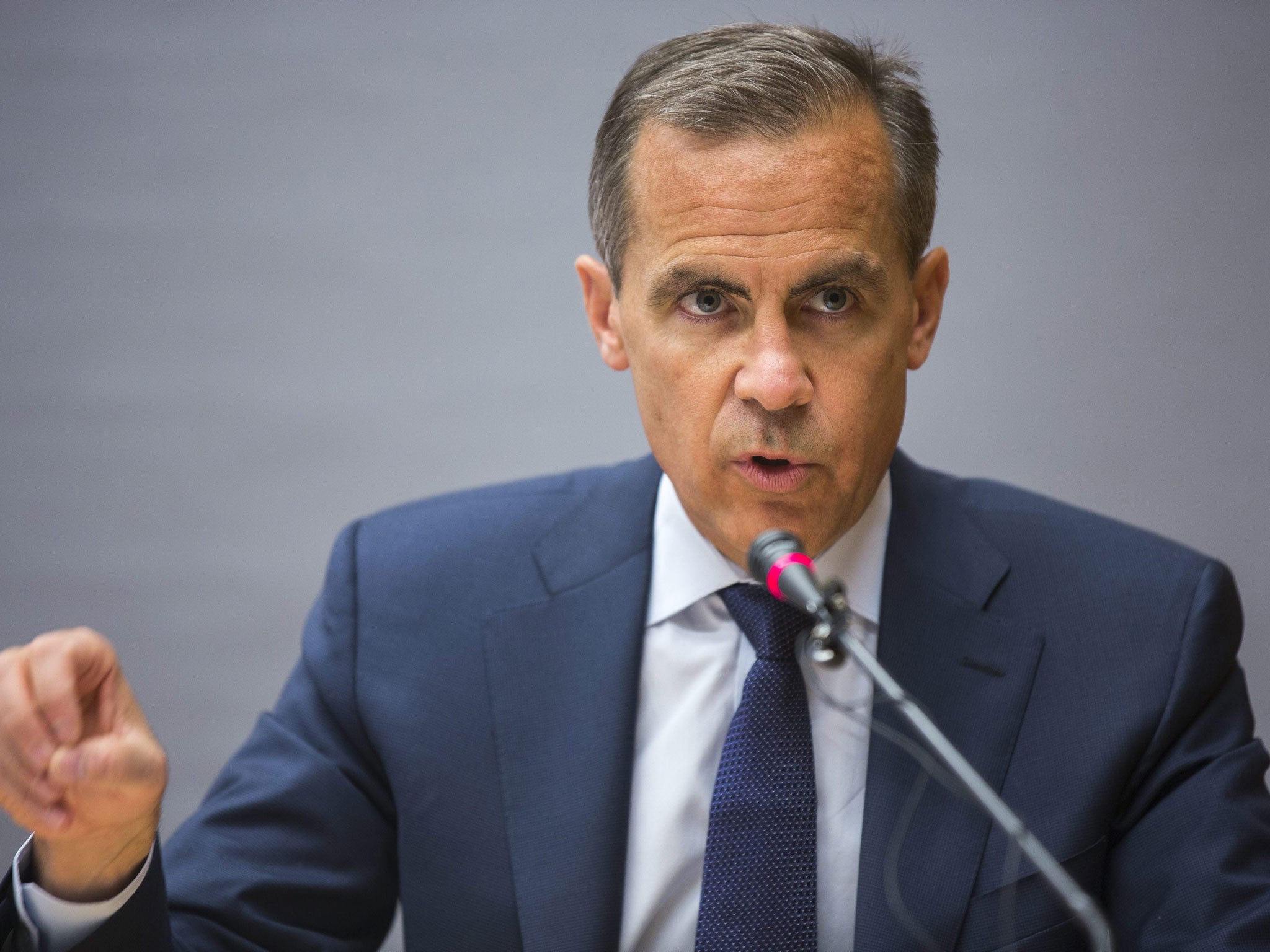Mark Carney calls for formal powers over bank leverage ratios
Clear signal of intent from Bank Governor is victory for fans of tougher oversight

The Bank of England should have the full and formal power to set a maximum amount of debt that banks can take on, Mark Carney said yesterday, marking a significant victory for those who have been pushing for tougher regulatory controls over the financial sector.
“We see that this power is necessary to implement a robust capital framework in the UK,” the Governor told the Treasury Select Committee. “My personal view is we should have those powers.”
While the Bank already has de facto control over the amount of debt individual banks can take on in their funding mix, Threadneedle Street presently lacks a formal “power of direction” over total leverage throughout the sector.
The hearing followed the publication of a letter from George Osborne to Mr Carney asking the Bank to begin an immediate review into “whether and when” it required such formal powers. The Chancellor had previously ruled out examining the subject until 2017.
Mr Osborne stipulated that he wanted to see “clear evidence” that imposing a tougher leverage ratio on British banks would improve financial stability and that he would “wish to understand” the impact on the ability of banks to fund the real economy. But Mr Carney’s comments signalled that he expects the review to conclude that the Bank should indeed take on the new power.
Bank executives have argued in the past that curbs to their leverage ratios by regulators would harm the wider economy, although regulators have long insisted that banks can easily raise more equity and continue to lend to businesses.
Andrew Tyrie, chairman of the committee, who has repeatedly pushed for the Bank to be given an immediate control over banks’ borrowing levels, said it was “pretty clear” where Mr Carney stood on the issue. “The Bank’s review will be about how the FPC [Financial Policy Committee] will exercise that power, not whether it should request it,” he said after the hearing. The Bank’s review will begin early next year and last for 12 months. Mr Carney said he expected the new formal power to be in place by early 2015.
Later in his testimony Mr Carney questioned the reliability of some of the output of the Office for National Statistics, particularly on the level of private investment. “We’re not putting full weight on that data, and it has to be said that it doesn’t entirely feel right that investment is, as measured, falling at a time when we see continued strengthening investment intention” he said.
He said he was more comfortable with official statistics in his native Canada. His deputy, Charlie Bean, said while the ONS once had a high reputation among its peers abroad, “maybe it’s not quite such a strong performer” today.
Subscribe to Independent Premium to bookmark this article
Want to bookmark your favourite articles and stories to read or reference later? Start your Independent Premium subscription today.

Join our commenting forum
Join thought-provoking conversations, follow other Independent readers and see their replies